When do the clocks go forward in 2025 and why?
Why do clocks change?
- Published
It's that time of year again when the clocks go forward in the UK.
On 30 March, clocks will go forward by one hour, as we change from Greenwich Mean Time (GMT) to British Summer Time (BST).
The bad news is, it means many of us lose an hour in bed on Sunday morning, BUT it signals the start of longer days and shorter nights.
Here's all you need to know about why the clocks change and how it all started.
More stories about the seasons
What is the autumn equinox?
- Published22 September 2023
When do the clocks change in 2025?
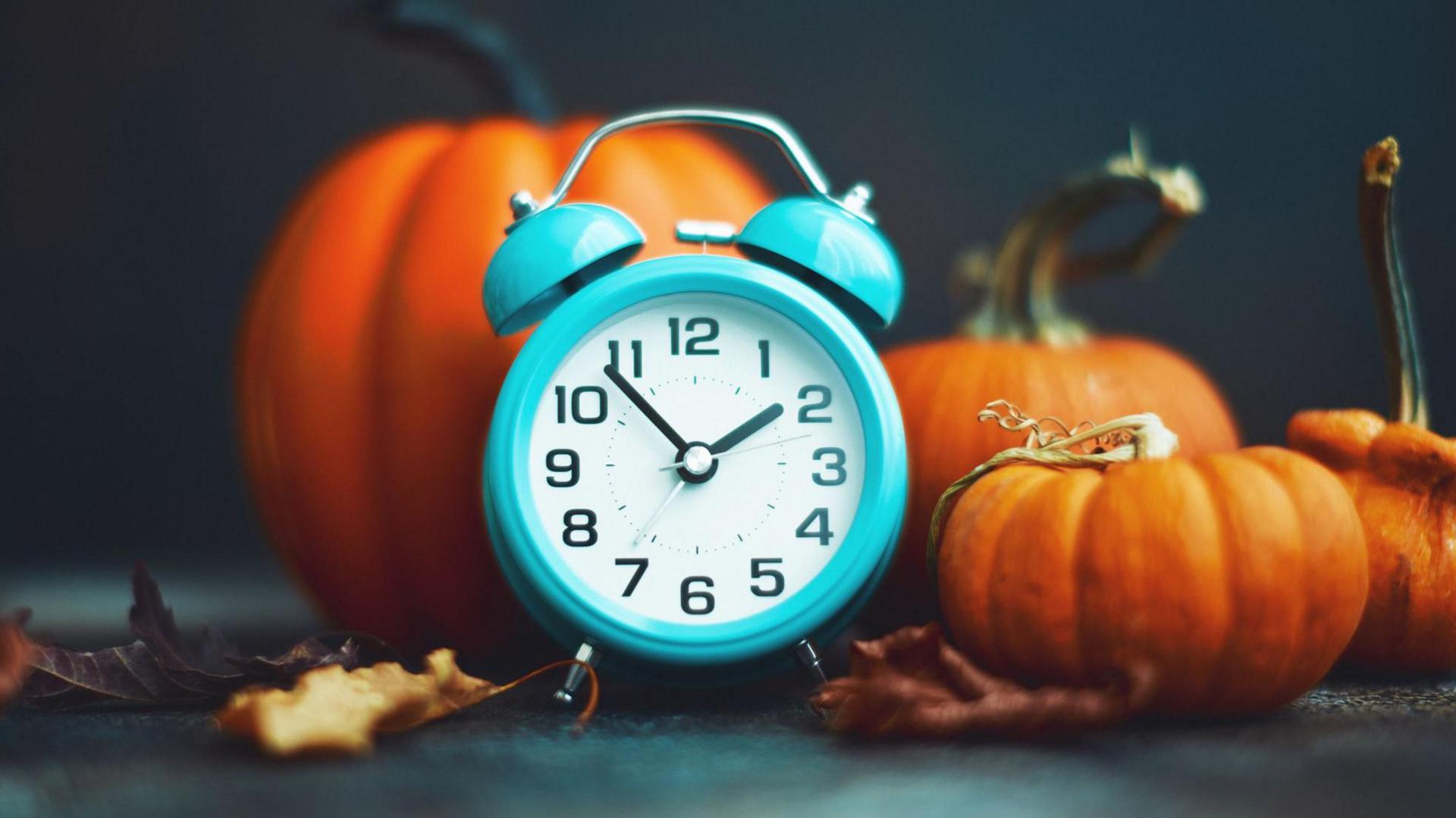
The clocks go back again during spooky season
The clocks go forward on the last Sunday of March.
The clocks normally go back an hour on the last Sunday of October. This year, that's Sunday 26 October.
Changing the time like this is also done in about 70 other countries around the world.
This includes many places in Europe and North America.
Do I need to change the clock on my phone?

Your phone should update automatically
Most smart phones, computers, and other devices connected to the internet will update the time automatically.
But if you have a watch or clock that isn't digital, you may need to change the time yourself.
Why do we change the clocks?
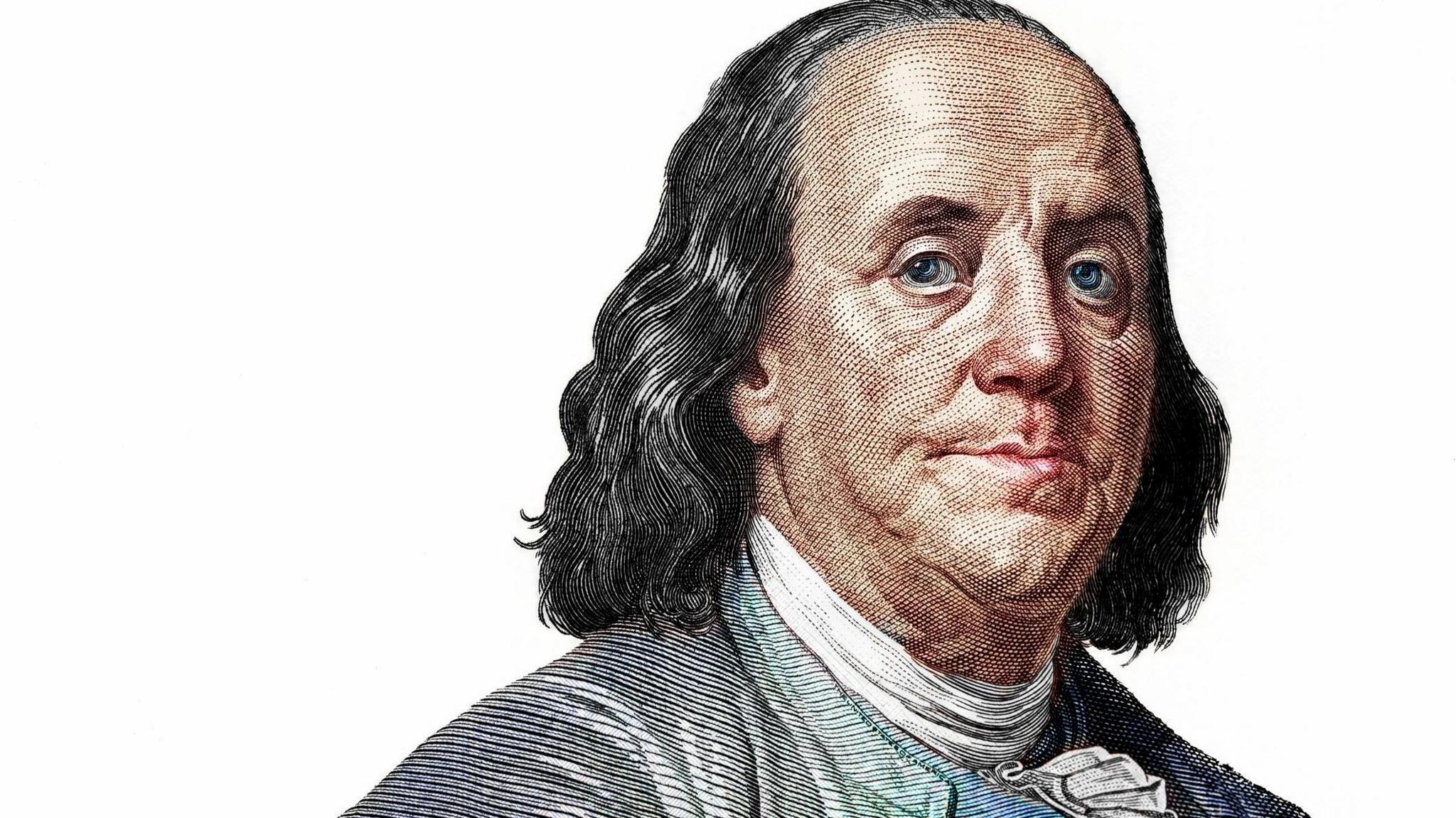
It was all Benjamin Franklin's idea
An American politician and inventor called Benjamin Franklin first came up with the idea while in Paris in 1784.
He suggested that if people got up earlier, when it was lighter, then it would save on the amount of candles used.
What is meant by daylight savings time?
You might have also heard of Daylight Savings Time - which is just another term for changing the clocks to get more sunlight in the evenings in summer - so that darkness falls at a later time.
What's the purpose behind daylight saving time?

The clocks going back in the autumn means an extra hour in bed!
The idea of changing the clocks depending on the time of year was to make the most of daylight through the summer by getting up earlier.
Some think having BST is a good thing because it saves energy, by making better use of natural daylight, and helps to reduce traffic accidents.
Others don't like it because they argue that it doesn't actually save any energy, and it can make it darker when children are going to school in the morning, which can be dangerous.
Some people also think it is not very good for our health.
What is Greenwich Mean Time?
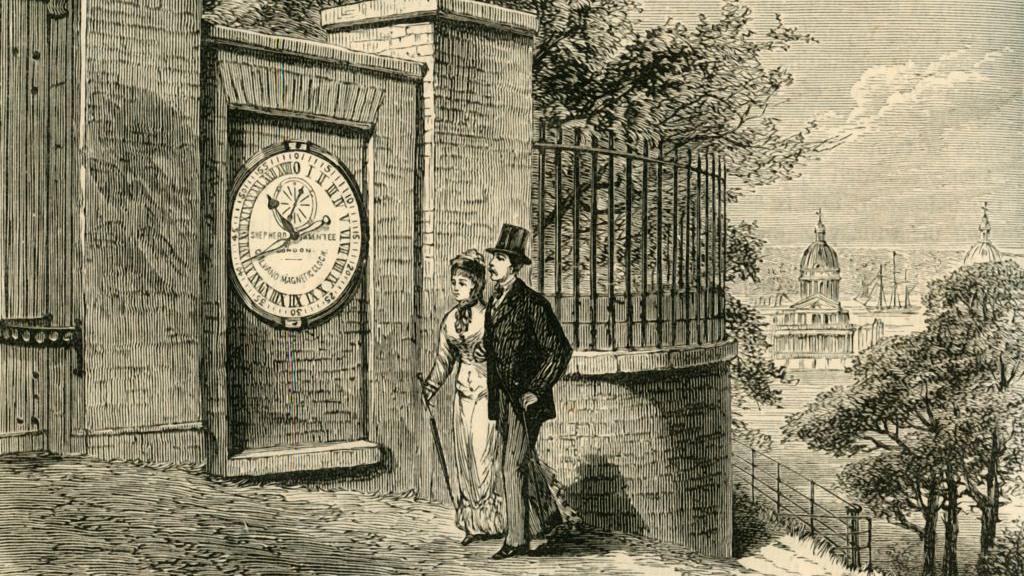
The Magnetic Clock at the Greenwich Observatory was thought to be the first to show Greenwich Mean Time to the public
Greenwich Mean Time is based on the time that is worked out at the Royal Observatory in Greenwich in London.
The word "mean" is a type of average. The "mean time" is the average time based on how the Earth moves around the Sun.
In the mid-19th century, the UK started using GMT as a standard for time because of railways. When trains got to stops, people had to know that the time would be the same for everyone else, or they would miss their train.
Before this there was no agreed upon "standard time" - most towns and cities around the world kept their own local time.
GMT was the only official time used in the UK before British Summer Time was introduced.
When did the UK start daylight saving time?

It seems there's a reason Coldplay sing about clocks
The idea arrived in the UK thanks to Coldplay singer Chris Martin's great-great-grandfather, a builder called William Willett.
In 1907, he published a leaflet called The Waste of Daylight, encouraging people to get out of bed earlier.
Willett was a keen golfer and he got cross when his games had to be cut short because the sun went down and there wasn't enough light to carry on playing.
When did we start changing our clocks?
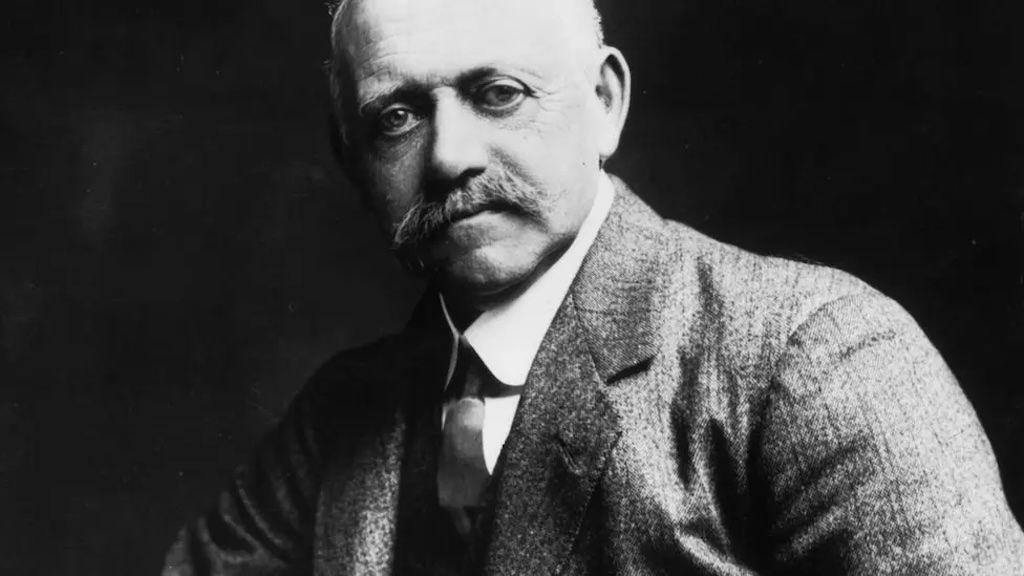
William Willett spent his life trying to convince people the clock change was a good idea
The idea of moving the clocks forwards and backwards was discussed by the government in 1908, but many people didn't like it so it wasn't made a law.
Willett spent his life trying to convince people that it was a good idea, but it was only introduced in the UK in 1916 - a year after he died.
It was actually first introduced by the Germans in World World One, just before the UK followed suit.
During World War Two, the UK used what was called British Double Summer Time (BDST), when the clocks were ahead by an extra hour during the summer.
But this didn't last for very long.
More stories like this
- Published3 April 2024
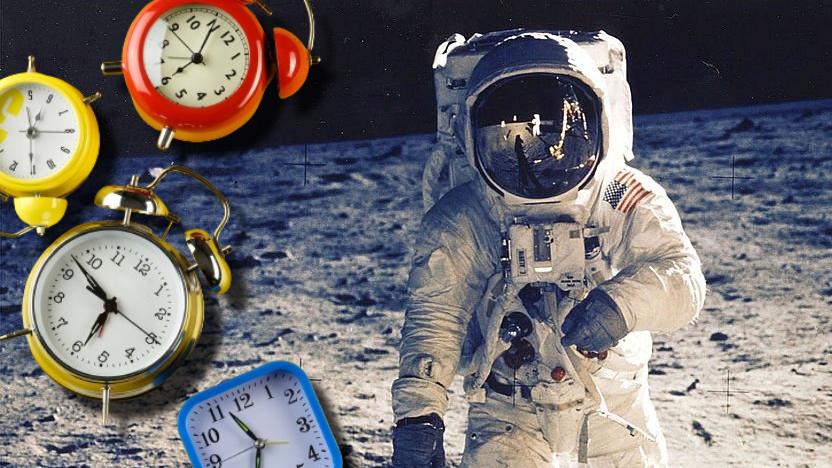
- Published19 September 2024

- Published8 October 2024

